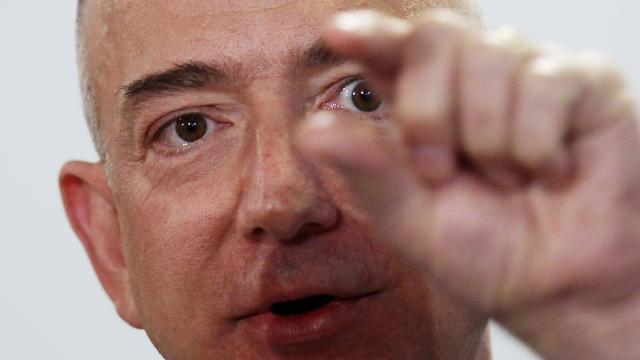In its escalating fight against fake product reviews, Amazon has for the first time started suing its own sellers instead of just going after other websites that promise to write five-star recommendations for cash. It’s another sign that the internet giant is increasingly serious about eliminating incentives for fake reviews that erode trust, even if it means targeting the third-party retailers that hawk their wares through Amazon’s platform and who, unlike the fake-review sites, are a source of revenue.
Image: Getty
The web giant has sued three of its sellers: a Chinese company called CCBetterDirect, Michael Abbara and Kurt Bauer. For all three, fake reviews comprised up to 40 per cent of the stores’ total reviews, so the violations were clearly not subtle.
The newest lawsuits continue the wave of litigation that Amazon started in early 2015. The company sued various websites (like the not-obvious-at-all buyamazonreviews.info) in April and October of last year and again two months ago. In total, Amazon sued over 1000 people, and more are probably coming. The move away from targeting sites like paidbookreviews.org and toward people on the Amazon platform shows how the company wants to send a very strong warning — which makes sense given that without trustworthy reviews Amazon wouldn’t be a very useful marketplace.
The company has long tried to develop ways to combat fakes, from ranking trusted reviews to developing algorithms that sniff out the obviously fake ones to suspending accounts altogether. It’s also tried out a “verified purchase” designation of people who’ve bought the product, though as Evan Schuman at ComputerWorld points out, it’s really not hard for fake reviewers to buy one item, get that designation and then go on to fake a review.
For marketplace sites like Amazon, reviews are crucial to distinguish themselves from competitors, and the lagging trust that consumers have across the board only hurts the company. A study from the University of Colorado at Boulder that came out last month found that user reviews and actual product quality had very little correlation. It’s unsurprising then that a separate study from Mintel, a marketing company, found that almost 70 per cent of Americans ask for other people’s opinions online before buying anything, and yet only 59 per cent trust the actual recommendations.
All that in mind, it makes total sense that Amazon is cracking down on fake reviews. Fake reviews are bad and discourage people from buying things! And Amazon really, really wants to sell people lots of things.
